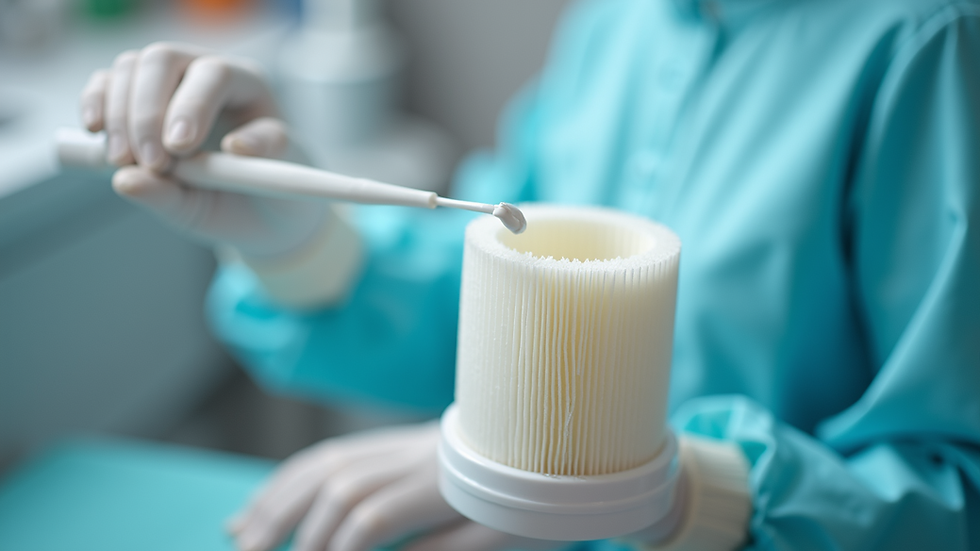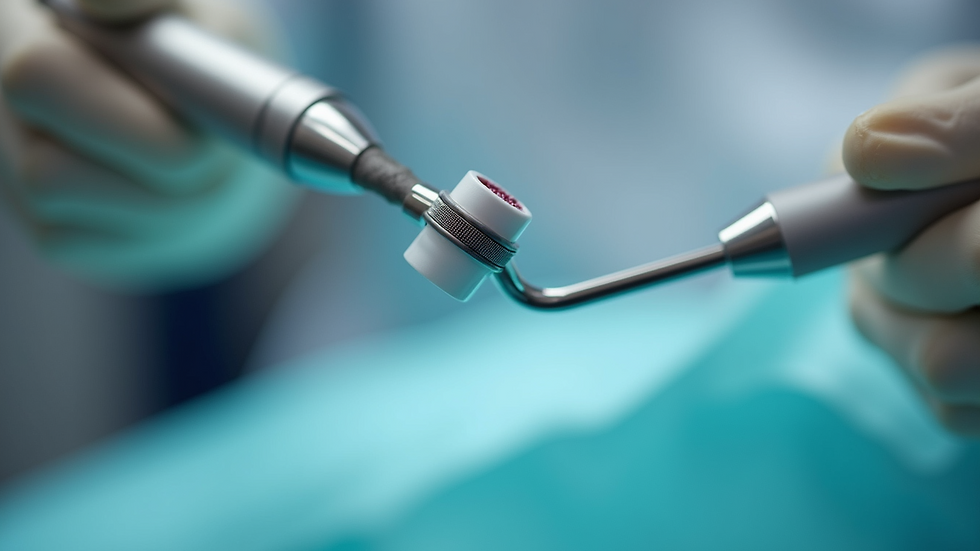The Importance of Regular Filter Changes in Dental Practices
- Randy Coppernoll
- Apr 1, 2025
- 4 min read
Maintaining a clean and safe environment is crucial for any dental practice. One of the often-overlooked aspects of dental equipment maintenance is regular filter changes. Filters play a vital role in ensuring that air and water systems function properly, making regular changes essential for health and safety.
Understanding Dental Filters
Dental filters are found in various equipment used in dental practices, including suction systems and air purifiers. These filters trap debris, bacteria, and other contaminants that can affect patient safety and equipment performance. Over time, filters can become clogged and less effective, leading to dangerous situations.
Regular checking and changing of dental filters help maintain optimal performance. Studies show that practices that routinely change their filters reduce the risk of cross-contamination and improve the air quality in treatment areas. This translates to a safer, healthier environment for both patients and staff.
Why Regular Filter Changes Matter
There are several key reasons why regular filter changes are so important in dental practices:
Preventing Contamination: Clogged filters can harbor bacteria and other pathogens. By changing filters regularly, you can significantly reduce the risk of cross-contamination, ensuring patient safety.
Enhancing Equipment Longevity: Regular maintenance, including timely filter changes, prolongs the life of dental equipment. Equipment that runs with clean filters operates more efficiently and is less likely to encounter issues that lead to costly repairs or replacements.
Improving Air Quality: Dental practices often utilize air filtration systems to ensure patient comfort. If these filters are not changed regularly, the quality of the air can diminish, potentially leading to respiratory issues and discomfort for both patients and staff.
Compliance with Regulations: Many health and safety regulations require dental practices to maintain a certain standard of cleanliness. Regular filter changes are a key component of meeting these requirements, which can help avoid fines and maintain a good reputation.
Cost Savings: Investing in regular filter changes can actually be cost-effective in the long run. By preventing equipment malfunction and enhancing air quality, practices can save money on repairs, replacements, and even patient complaints.
What is the Maintenance of Dental Equipment?
When discussing the maintenance of dental equipment, it encompasses a broad range of tasks that ensure all tools and machinery function properly. This includes routine cleaning, sterilizing, and changing filters. Conducting regular maintenance can prevent equipment failure and ensure that patients receive the highest standard of care.
One crucial task in this maintenance is the replacement of filters in suction devices and sterilizers. These filters capture contaminants, ensuring that the equipment operates efficiently. Ignoring this step can lead to decreased suction power or contamination of the water used in procedures.
Additionally, routine checks on water lines for leaks or blockages, inspecting handpieces, and calibrating X-ray machines are all part of a comprehensive dental equipment maintenance plan. Regular documentation and scheduled maintenance checks can significantly enhance productivity and patient satisfaction.
Signs that Your Filters Need Changing
Recognizing when to change filters is crucial. Here are some signs indicating that it may be time for a filter change:
Reduced Efficiency: If equipment seems to be struggling or less efficient than usual, it could be a sign that the filter is clogged.
Unusual Noises: Equipment making odd sounds could indicate strain from blocked filters.
Recognizable Smells: If there is a musty odor present in the practice, it could point to dirty air filters.
Increased Maintenance Costs: If repairs and maintenance costs are rising, it may be time to inspect your filters.
Performing regular inspections and keeping a log of when filters were last changed can help maintain a schedule and prevent issues that could affect patient care.
Recommendations for Effective Filter Maintenance
To ensure your dental practice's filters are maintained effectively, follow these recommendations:
Create a Maintenance Schedule: Set a regular interval for filter checks and changes. This could be monthly or quarterly, depending on the equipment's usage and your specific practice needs.
Train Staff: Ensure all staff members understand the importance of filter maintenance. Encourage them to report any changes in equipment performance or signs of an issue.
Invest in Quality Filters: Opt for high-quality filters that are designed for your specific equipment. This will ensure better performance and improved safety.
Document Everything: Keep a log of all filter changes and maintenance performed. This documentation will help track the history of equipment care and can be beneficial during inspections.
Engage Professionals: Sometimes, hiring a service technician for regular maintenance checks can provide peace of mind, ensuring that everything is operating at full capacity.
By conducting regular filter maintenance, your dental practice can enjoy enhanced performance, safety, and satisfaction levels among patients and staff alike.
Final Thoughts
The importance of regular filter changes in dental practices cannot be overstated. From promoting patient safety to extending equipment life, maintaining clean filters is a small but vital part of a successful dental operation. Establishing a routine not only ensures compliance with health standards but also saves money and fosters a healthier environment for everyone involved.
So, take charge of your practice's dental equipment maintenance by prioritizing the regular replacement of filters. By doing so, you'll be investing in the long-term success and safety of your practice.






Comments